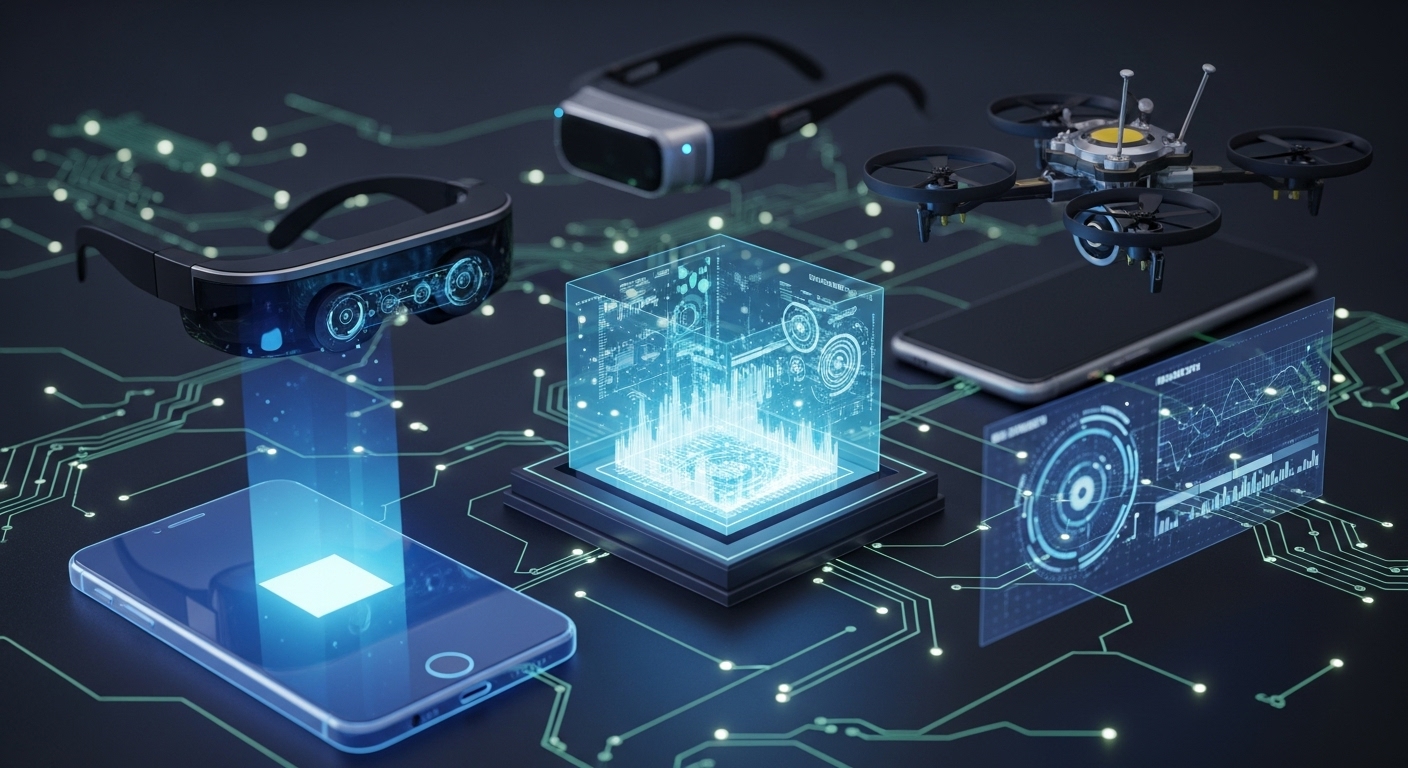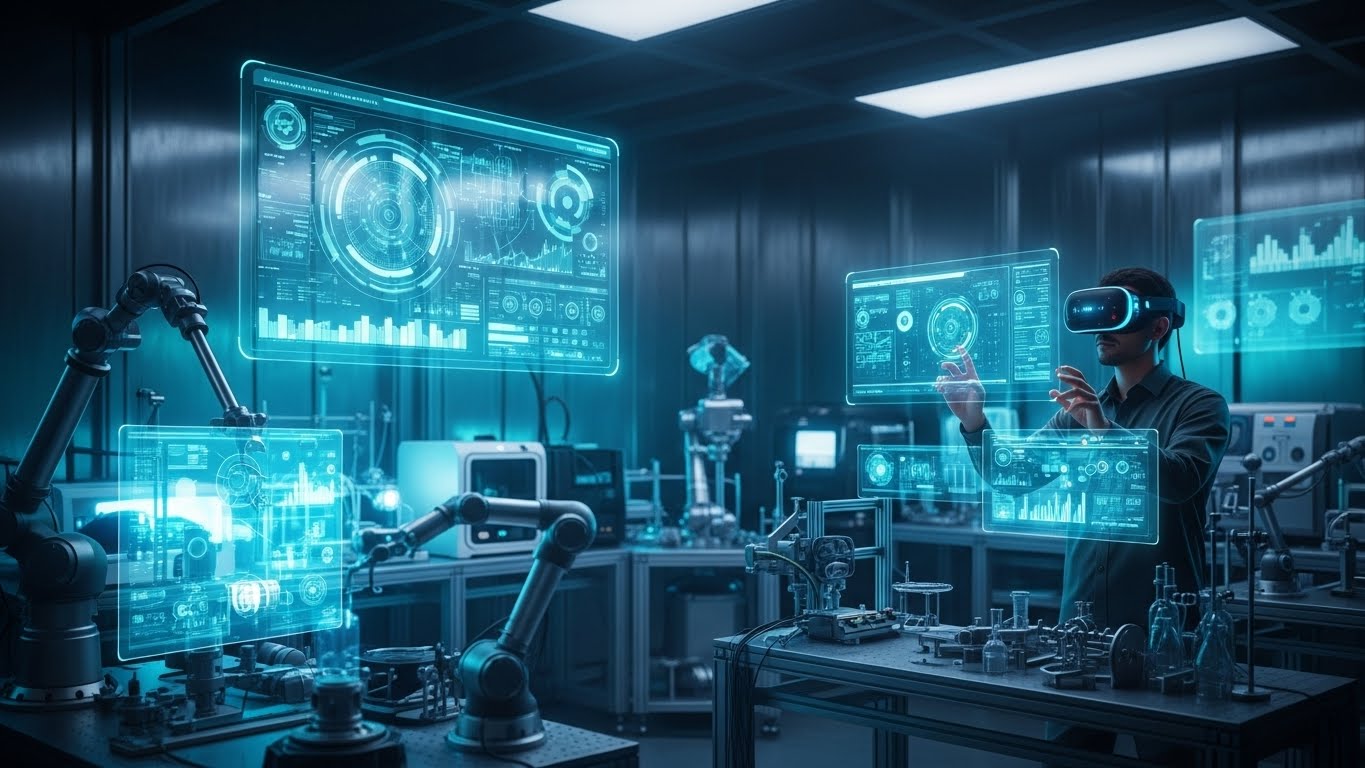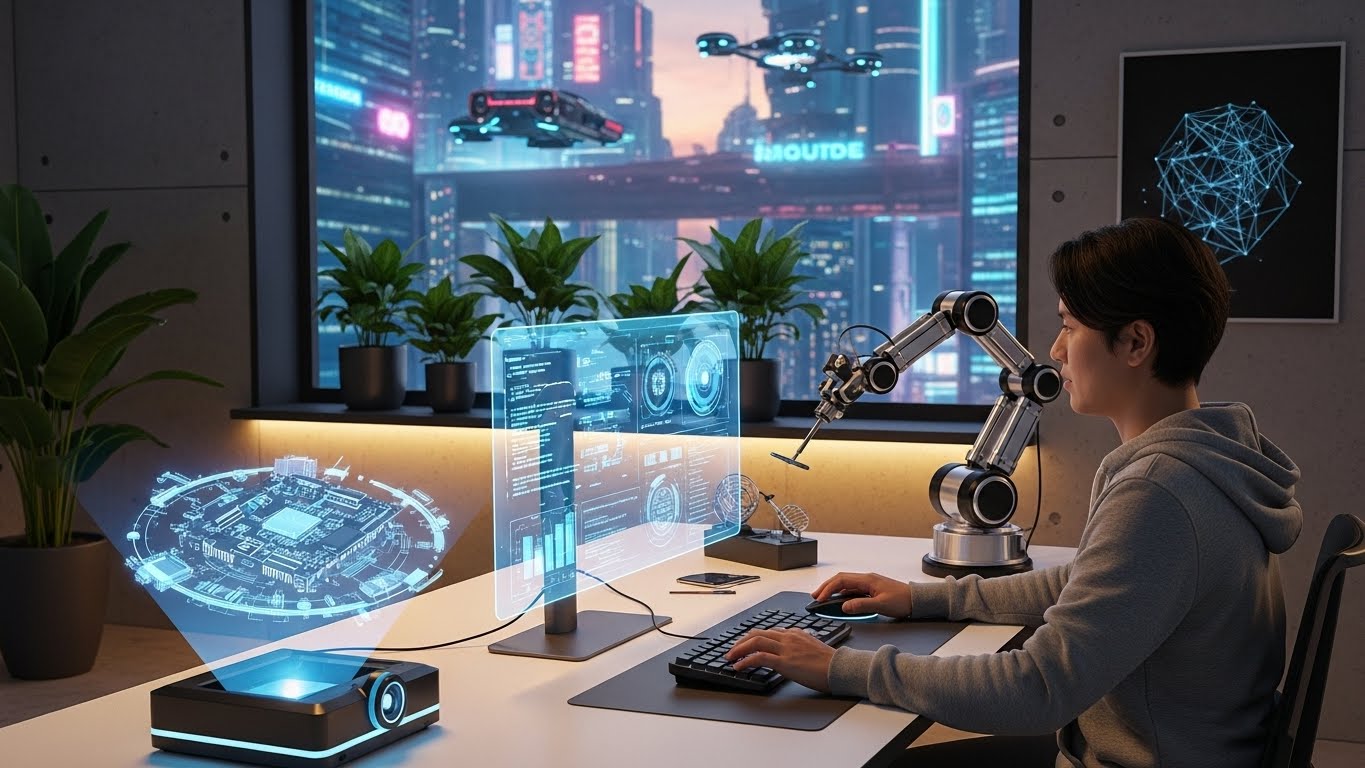In recent years, the rise of artificial intelligence (AI) has created waves of change across various sectors, from healthcare to finance and even the creative industries. As businesses strive to stay competitive in an increasingly digital world, AI technologies are no longer just a futuristic concept but an integral part of the present. But what does AI mean for the future of work? How will it transform our jobs, daily routines, and professional environments? This blog will explore the profound impact that AI is expected to have on the workplace and the skills necessary for individuals to thrive in an AI-driven world.
What is Artificial Intelligence?
Artificial intelligence refers to the simulation of human intelligence processes by machines, especially computer systems. These processes include learning (the ability to improve performance based on experience), reasoning (making decisions based on available data), problem-solving, and understanding natural language. AI systems can be divided into two categories: narrow AI (which is designed to handle specific tasks, such as facial recognition or voice assistants) and general AI (which would possess the ability to perform any intellectual task that a human can do). Currently, most AI applications are narrow, focusing on specialized tasks within a limited scope.
The Increasing Role of AI in the Workplace
AI’s role in the workplace has been steadily growing. With the ability to automate repetitive and time-consuming tasks, AI offers businesses an opportunity to streamline operations, reduce costs, and improve efficiency. AI applications, such as machine learning algorithms and natural language processing, are being utilized in diverse ways, from customer service chatbots to advanced data analysis tools. As AI continues to evolve, it will inevitably play an even larger role in industries ranging from manufacturing to marketing and beyond.
Automation of Repetitive Tasks
One of the most significant impacts of AI on the workforce is the automation of repetitive and mundane tasks. For example, administrative jobs like data entry, scheduling, and basic customer support can all be efficiently handled by AI systems. This shift allows employees to focus on more complex and creative work that requires human ingenuity and emotional intelligence.
In sectors like manufacturing, robotics powered by AI is already transforming production lines. Machines are now capable of assembling products, inspecting quality, and packaging items without human intervention. These changes result in significant increases in efficiency, accuracy, and overall productivity.
Data Analysis and Decision-Making
In the digital age, data is a valuable commodity. AI can help organizations make sense of massive datasets, uncovering patterns and insights that humans may overlook. Machine learning algorithms can analyze historical data and predict future trends, providing valuable information to inform decision-making.
For instance, in marketing, AI can analyze consumer behavior, optimize advertising strategies, and even predict customer needs. In the financial industry, AI-powered tools help with fraud detection, risk management, and market forecasting. These capabilities enable businesses to make data-driven decisions with greater speed and accuracy than ever before.
AI’s Impact on Different Industries
While AI’s impact is felt across nearly every industry, some sectors are more dramatically affected than others. Here, we take a look at several industries where AI is already making a significant difference.
Healthcare
In healthcare, AI is revolutionizing how doctors diagnose and treat patients. AI-driven tools can analyze medical images, such as X-rays or MRIs, with remarkable precision. They can also assist in developing personalized treatment plans based on a patient’s medical history and genetic profile.
Moreover, AI-powered chatbots and virtual assistants are helping patients navigate healthcare systems, book appointments, and access reliable information. In clinical research, AI is accelerating the discovery of new drugs and therapies by analyzing complex data faster than human researchers could.
Finance and Banking
AI has transformed the finance sector by improving fraud detection, streamlining customer service, and enhancing financial modeling. Automated trading systems, powered by machine learning algorithms, are making real-time decisions in stock markets, optimizing portfolios, and identifying market anomalies.
In banking, AI-powered chatbots are enhancing customer service by offering 24/7 assistance. These bots can handle a wide range of inquiries, from account balances to transaction histories, reducing the workload on human agents and improving overall efficiency.
Retail and E-Commerce
Retail and e-commerce are perhaps the most visible industries where AI is making its mark. Personalization, driven by AI, has revolutionized how companies engage with customers. By analyzing past purchase behavior and browsing habits, AI algorithms can offer personalized product recommendations, tailored discounts, and even suggest entire shopping experiences.
In supply chain management, AI is optimizing inventory control, demand forecasting, and delivery logistics. Automated warehouses powered by AI robots can process orders and sort items with minimal human intervention, drastically reducing operational costs.
Transportation and Logistics
The transportation industry is being transformed by AI in several ways. Self-driving vehicles, for example, are poised to revolutionize road transport. While still in the experimental phase, autonomous trucks and delivery drones could drastically reduce labor costs and improve the speed and efficiency of logistics networks.
AI is also making transportation safer. In aviation, AI systems help predict maintenance issues before they occur, ensuring aircraft remain in optimal condition. In urban planning, AI is being used to optimize traffic flow, reducing congestion and improving overall public transportation efficiency.
The Changing Nature of Work: Human and AI Collaboration
Rather than replacing human workers, AI is more likely to augment their abilities and assist in decision-making. In many cases, AI can handle routine tasks, freeing up employees to focus on more creative, strategic, and human-centric work.
For example, in marketing, AI tools can gather and analyze data on consumer behavior, but it is the human marketer who decides on the strategy and tone of the campaign. In fields like graphic design or content creation, AI can generate initial drafts or concepts, but it is the human designer or writer who refines the work, adding a unique, personal touch that AI cannot replicate.
AI’s collaborative role in the workplace is especially evident in fields like healthcare and education. In healthcare, AI can help diagnose conditions and propose treatment plans, but doctors and medical professionals are responsible for interpreting these recommendations and making final decisions. Similarly, in education, AI-powered tools can provide personalized learning experiences, but human educators remain essential in fostering a supportive, empathetic, and interactive learning environment.
Skills for the AI-Driven Future
As AI continues to evolve, the demand for certain skills will shift. While technical expertise in AI and data science will be valuable, there will also be a significant emphasis on human-centric skills such as creativity, critical thinking, emotional intelligence, and communication. Workers will need to adapt to this new reality by learning how to work alongside AI systems rather than viewing them as competitors.
Upskilling and Reskilling
Upskilling and reskilling initiatives will be crucial in preparing the workforce for an AI-driven future. Governments, businesses, and educational institutions must work together to provide opportunities for workers to acquire the skills necessary to succeed in this new landscape. This includes not only technical skills but also the ability to adapt to changing technologies, manage AI-driven tools, and effectively collaborate with machines.
Emotional Intelligence and Creativity
As AI takes over more routine tasks, jobs that require emotional intelligence, empathy, and creativity will become more prominent. Professions like counseling, art, and design, where human connection and innovative thinking are essential, are likely to remain less affected by automation. Similarly, leadership roles that require judgment, decision-making, and people management will continue to rely on human abilities.
Ethical and Social Implications of AI in the Workplace
While AI holds immense promise, its integration into the workplace also raises important ethical and social considerations. One of the most pressing concerns is the potential for job displacement. Automation has already replaced many jobs that were once performed by humans, and AI has the potential to eliminate even more positions, particularly in fields like transportation, customer service, and administrative work.
To mitigate these effects, it is essential for governments and businesses to implement policies that ensure workers are supported throughout the transition. This might include providing safety nets for displaced workers, investing in education and retraining programs, and promoting job creation in emerging industries where AI is unlikely to replace human workers.
Conclusion: Embracing the AI Revolution
The future of work in an AI-powered world is both exciting and challenging. AI offers incredible opportunities to streamline operations, improve decision-making, and increase productivity across multiple sectors. However, it also presents significant challenges, including the potential for job displacement and the need for continuous learning and adaptation.
As we move forward, it will be essential to strike a balance between leveraging the capabilities of AI and ensuring that workers are adequately prepared for the changes ahead. By focusing on upskilling, fostering creativity and emotional intelligence, and addressing ethical concerns, we can harness the full potential of AI while creating a more inclusive and equitable workforce. The key to success in an AI-driven future lies in collaboration – humans and machines working together to create a better, more efficient world.



